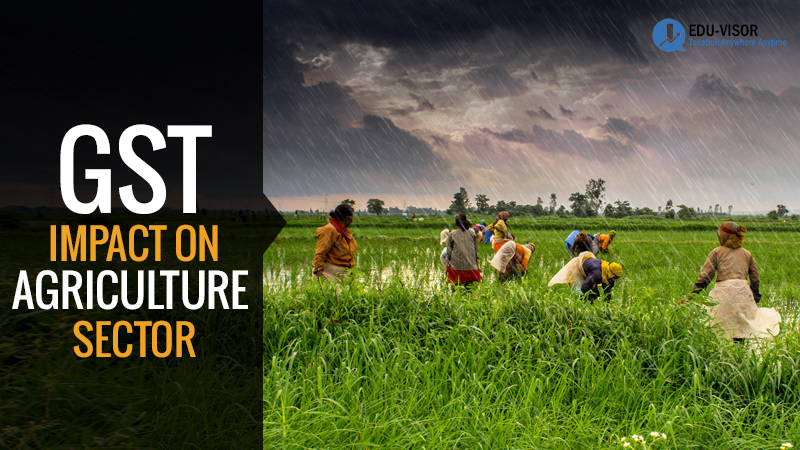
Impact of GST on the Agricultural Sector in India
Most experts believe that the impact of GST on the Agricultural sector in India will be positive. In the overall Indian GDP, the agricultural industry plays an important part, being the major contributor covering almost 16%. Hence, the impact of GST on agriculture must be studied extensively to ensure that farmers do not get the short end of the straw. The implementation of GST might also help solve the problem of transportation of goods, helping establish a National Market for agricultural goods. Here’s a closer look at agricultural products under GST, and the impact of GST on agriculture in India.
- What is GST on agricultural products?
- How will GST benefit industry trade and agriculture?
- Is GST applicable to farmers?
- What is the GST rate on a tractor?
What is GST on agricultural products?
The Indian government has exempted GST on the agricultural industry largely. Essentially, there is no GST on agricultural products like vegetables, produce, dairy, and fresh fish. Therefore, all businesses that are a part of the agricultural industry, which do not engage in processing do not have to worry about GST. Furthermore, businesses that solely supply goods or services are exempt from GST and can choose to opt-out of registering for it. Therefore, farmers who sell their produce fresh do not have to pay GST on agricultural products. Furthermore, seeds are also exempt from GST, helping make things easier for farmers.
How will GST benefit industry trade and agriculture?
- The implementation of GST will help in improving the transparency, credibility, and reliability of the agricultural industry.
- It will help implement a proper supply chain mechanism.
- Such a system of supply would help in minimizing the wastage of produce.
- Help cut the transportation costs that farmers have to endure.
- Can help bring down the cost of heavy machinery linked to agriculture
- Under the GST regime, fertilizers, which were taxed at 6% have gone up to 12%, meaning farmers can now claim ITC.
- Similarly, tractors had a waiver on taxation which under the GST has been hiked to 12%, allowing farmers to claim ITC on the money spent.
- Also, with regards to the dairy industry, GST has been exempt for fresh milk, whereas skimmed milk falls in the 5% margin.
Is GST applicable to farmers?
As per the GST Act, farmers are not liable to pay any GST. Agriculturists who only supply products to others through cultivating their land do not have to pay GST of any sort. They also do not have to register for the GST. An agriculturist is any individual or HUF who cultivates their land via;
- Individual labour
- Labour of family
- Servants who help with paying wages in cash or in kind
- Hired labour under the supervision of any sort
Goods and Services Tax (GST) is the value-added tax levied on all goods and services that we use within the country. We offer a GST rate finder service that lists out the GST rates of all goods and services that are available in India. This service is also known as the HSN finder.
Only small farmers who follow this practice are exempt from paying GST. Large companies that operate as an LLP, Company, or Firm which undertakes farming will have to pay GST. If they cross the criteria for annual turnover, they will need to register for GST and pay the required liability. Any individual who does so is also allowed to avail Input Tax Credit whenever applicable.
What is the GST rate on a tractor?
| HSN Code | Tractor Type | GST Rate |
| 8701 | Tractors other than semi-trailers with a capacity exceeding 1800 cc | 12% |
| 8701 | Tractors for semi-trailers of capacity over 1800 cc | 28% |
GET ONLINE GST REGISTRATION